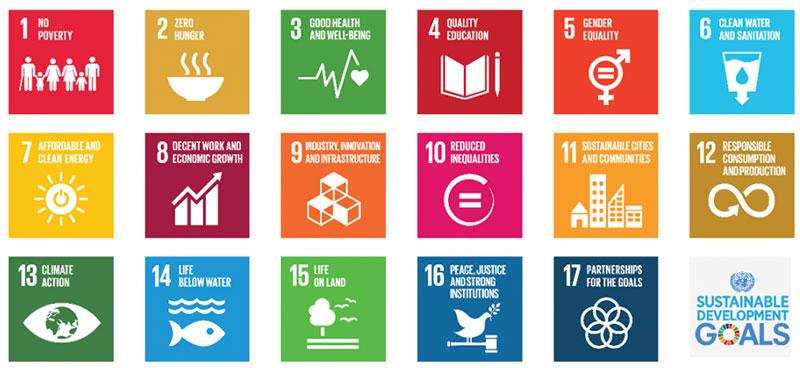
On September 20, 2023, the Biden administration met at the Sustainable Development Summit in New York with the goal of recommitting to the [United Nations] 2030 Agenda for Sustainable Development and the Sustainable Development Goals—SDGs. A White House fact sheet stated, “The United States is committed to the full implementation of 2030 Agenda and the SDGs, at home and abroad… At their core, the SDGs seek to:
- Expand economic opportunity – This means public-private partnerships, which is crony capitalism. In this scheme there are winners and losers, where profits are privatized and losses are socialized on the backs of middle-class Americans.
- Advance social justice – This means placating and advancing people based on their skin color. At its core it is discriminatory.
- Promote good governance – This skirts our elected form of government and injects unelected special interest initiatives into our lives, where no one gets to vote.
- Ensure no one is left behind – This means catering to protected classes and minorities in order to create “capacity building” for initiatives and redistributive wealth schemes. Under Diversity and Inclusion (DEI), these classes are awarded “equity” and “inclusion” based on their skin color.
In a Ping-Pong game of executive orders, President Obama put the federal agencies into the SDGs; President Trump got SDGs out; President Biden put them back in during the first week of his administration. Congress has done nothing to reel them in.
Biden sent an envoy to California to study what the state has done with its radical climate bills in order to put the ideas to work in the $1.2 trillion dollar Infrastructure Bill and the $720 billion dollar Inflation Reduction Act. In order to “incentivize” states, the federal government offers grants for voluntary, nonbinding, United Nations SDGs. In other words, states don’t have to do this; however, they sell out for the money.
In order to take advantage of bribe money called grants, States have inserted themselves into California-style climate action plans to reduce arbitrary greenhouse gas emissions (GHGs). People can no longer say, “It’s just happening in California.” You are California…
According to the EPA, “States submitted climate action plans under President Biden’s Inflation Reduction Act. In 2023, under the first phase of the $5 billion program, EPA made a total of $250 million in grants available to states, the District of Columbia, Puerto Rico, 80 MSAs, four territories, and over 200 Tribes and Tribal consortia to develop ambitious climate action plans that address greenhouse gas emissions. 45 states are now covered by a climate action plan. 5 states: Florida, Iowa, Kentucky, South Dakota and Wyoming decided not to participate.”
There’s capitalism; everything else is collectivism
Sustainability is collectivism: It’s a worldview where free individuals must give up their rights and private property for the collective good; where everyone is equal—equally poor. It is antithetical to the United States Constitution; therefore, it is unconstitutional. Even though it’s voluntary, that does not stop its implementation by the government.
Sustainability can be defined as artificial scarcity under the guise of conservation. Its goal is transformation through control of society by behavior modification and social engineering. It is using less of everything: Less food, less energy, less choice, less water, less mobility and less freedom. At its core, its rationing, all contrived by unelected agencies, boards, bodies, commissions, nonprofit corporations, international non-governmental organizations (NGOs) and Indian tribes. This ‘governance’ is designed to replace our representative form of ‘government’ by turning elected public officials into to rubber stamps, installing prepackaged solutions, for problems that don’t exist.
Once climate actions plans become law or have ordinances attached to them, property owners will have a difficult time unwinding them. Ordinances are now being drafted in the city of Rancho Cucamonga, California.
Rancho Cucamonga, California: A Climate Action Plan (CAP) Case Study
CAPs are being accomplished at the state and local level. For example, the city of Rancho Cucamonga, California has added a CAP to its comprehensive General Plan Update as a “companion”. Now, the city is drafting administrative ordinances to it. See the article titled, Climate Change: Rancho Cucamonga Proposing Questionable “Mandatory” Tax & Fees on Residential and Commercial Property, which was predicated on a letter sent to the city (see link below) council contesting ordinances for the CAP.
How to push back: Steps to review and critique a CAP
- Download the city CAP.
- Download the letter to the city council denoting page references to the CAP for comparison.
- Find your “EPA” State CAP and/or city/county CAP, download it and start your critique using the example above. Your city/county CAP will be at their website. Google your city/county name and the words, “Climate Action Plan”.
- Send or deliver your CAP critique to your local state representative and demand to know how it got into the state and tell them to get rid of it because it surrenders everyone’s property rights, protected by the Constitution, to the United Nations. If you email, be sure to confirm that the recipient received the message. Type at the top of the page “please confirm receipt of this email and distribution.”
As you do your review, consider these questions:
- Are Climate Action Plans (CAPs) mandatory?
- Are Green House Reductions (GHG) mandatory?
- Are ordinances in CAPs mandatory?
Answers: NO, NO and NO…
---------------------------------
Dan Titus is affiliated with the American Coalition for Sustainable Communities (ACSC). Their mission is sustaining representative government; not governance, by collectivist-oriented unelected agencies and commissions.

















